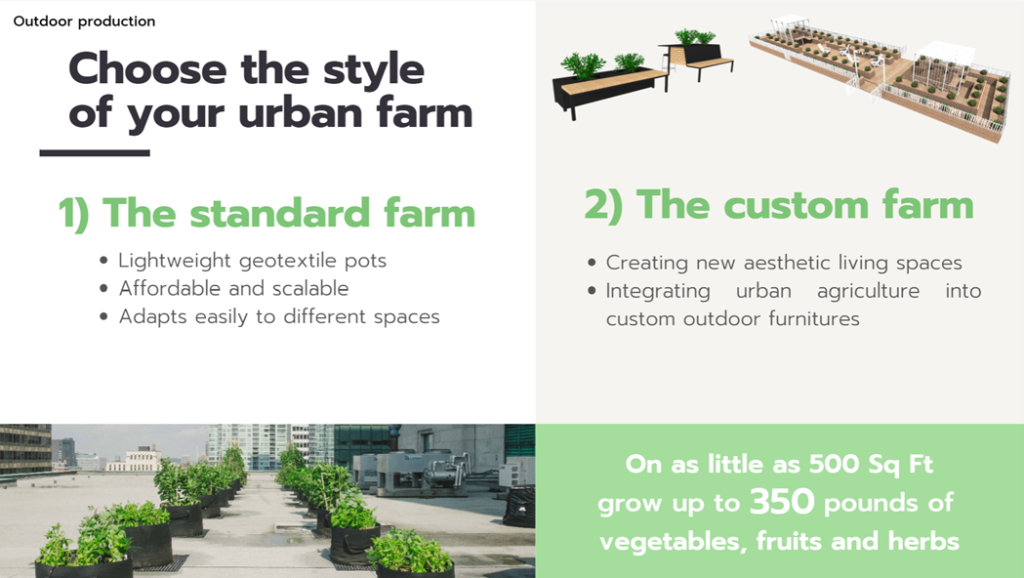MicroHabitat: Urban farming projects for businesses
February 23, 2021For many businesses with parking lots, lawns and flat rooftops, urban farming projects can be a great way to utilize unused space while creating positive social and environmental outcomes. That is why RCC wanted to highlight the great work MicroHabitat is doing in Montreal and Toronto to help organizations transform urban spaces into urban farms.
MicroHabitat is a Canadian business that provides a turnkey service to help organizations with the conception, implementation, weekly maintenance and harvesting of your urban farm. Depending on the size of your space and your goals, MicroHabitat can help you develop a standard or custom farm.
Using a light and easy-to-install technology, the installation of a MicroHabitat urban farm requires no structural modification and is safe for the roof membrane. In general, season planning and installation begins in the spring with weekly maintenance and harvesting throughout the summer. Gardens are put into hibernation in the fall, until ready to grow again in the spring.
Services are also provided for education, mobilization and promotion including professional photos to help promote your initiative on social media and in corporate reports.

Social benefits
Given the economic challenges associated with the COVID-19 pandemic, an urban farm provides a great opportunity to give back to the community by partnering with local food banks, community projects or restaurants. If you’re interested in this approach, MicroHabitat has its own Urban Solidarity Farm program which can help connect corporate clients to local food banks. To date, this has helped provide food banks with more than 2 tons of fresh food per season. Beyond this, each farm project helps to financially support the Breakfast Club of Canada. For every pot sold, a child in need receives a free lunch.
You can also use the fresh produce for your own internal needs (e.g., cafeteria salads) or sell it to customers and/or employees (e.g., produce baskets). Either way, you are helping to promote a sustainable food system, creating a positive sense of community for customers and employees, and advancing your business’ reputation.
Environmental benefits
Many urban areas, including parking lots, experience higher temperatures that natural landscapes (e.g., forests) due to the heat island effect where buildings and pavement absorb and re-emit heat. Urban farms can help mitigate this effect by providing increased coverage. Farms also help to manage rainwater and create biodiversity islands for local wildlife.
Another environmental benefit of having an urban farm is that you can help reduce the carbon footprint of food since produce is grown and distributed locally. All of these benefits add up and give businesses an opportunity to revalue and optimize unused spaces.
Opportunities for 2021
It takes approximately one month of planning to set up a farm, which means that RCC’s members have until the end of April to submit project ideas for 2021. This timeline also provides companies with an opportunity to announce initiatives on Earth Day, April 22, to further environmental and social discussions.
Additional resources
If you would like to learn more, you can visit MicroHabitat’s website or email them here.



